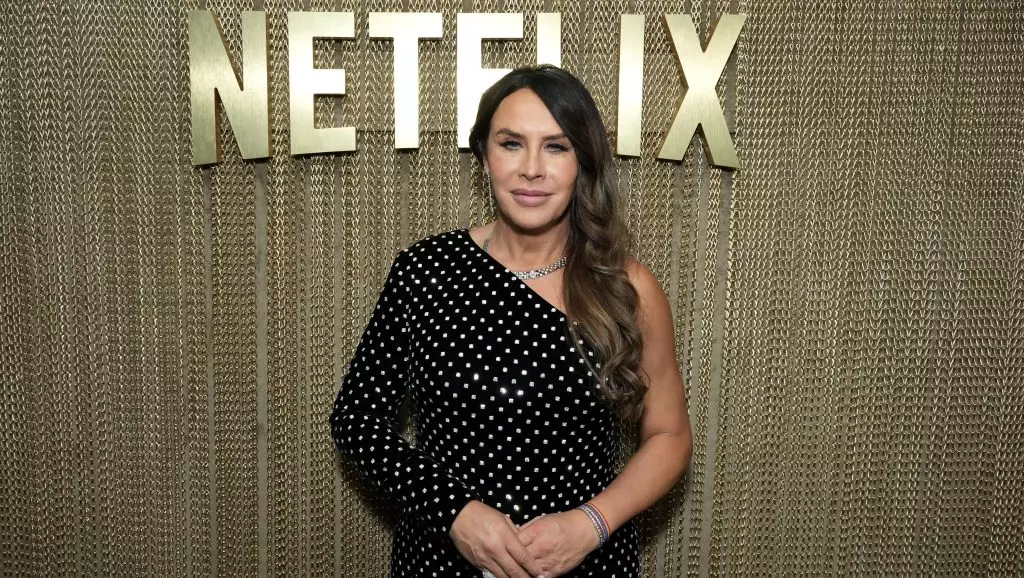Karla Sofía Gascón was on the cusp of rewriting Hollywood history, poised to become the first openly transgender actress to secure an Academy Award. Her role in *Emilia Pérez* not only showcased her talent but also positioned her as a beacon of hope for many in the LGBTQ+ community. However, the dream of Oscar glory took a significant hit due to controversial social media posts from 2016 that resurfaced, causing a media frenzy. This instance starkly highlights the precarious balance public figures must maintain in our hyper-connected world, where opinions shared long ago can drastically alter career trajectories.
The unraveling of Gascón’s Oscar dream began when journalist Sarah Hagi dug into her digital history. Posts that expressed inflammatory views on religion, race, and social issues painted Gascón in a polarizing light that contradicted her status as a trailblazer. The implications for her career were severe, especially in an industry often criticized for its lack of diversity and inclusion. The juxtaposition of pain and potential triumph here creates a narrative rich with lessons about accountability and societal norms.
Social Media’s Double-Edged Sword
Social media, while a powerful tool for self-expression and connection, can also serve as a minefield for public figures. Gascón’s past tweets, including derogatory comments toward various communities, sparked outrage. The fallout serves as a cautionary tale, showcasing the complexities of digital communication. For those in the limelight, the consequences of a moment’s poor judgment can echo for years.
Despite the backlash, Gascón’s response has been a rollercoaster journey; she has swung between moments of contrition and defensiveness. During recent promotional events for her biographical book, *Lo que queda de mi (What’s Left of Me)*, she boldly attributed the backlash to a targeted campaign against her. Opinions about her actions vary widely, yet her comments challenge us to contemplate the nature of accountability. Is her refusal to accept guilt a product of genuine belief, or does it stem from a refusal to be painted into a corner by public opinion?
A Fragile Path to Forgiveness
Ambiguity surrounds the concept of forgiveness in the world of celebrity scandals. Gascón has expressed a troubling indifference towards the concept, stating that nobody needs to forgive her. This perspective raises questions about personal responsibility and societal reconciliation. If an individual believes their past actions warrant no apology, then how does that affect the broader dialogue about social justice and accountability?
Her claims of having fought against systemic oppression in her youth, including encounters with extremist groups, illustrate the dichotomy of her identity. How does one reconcile a past marked by activism with harmful rhetoric? The question looms larger than Gascón herself, beckoning a deeper exploration into the journeys of those who transition from hate speech to becoming symbols of progress. The potential for individual transformation is immense, yet the path is fraught with peril.
Industry Dynamics and Support
The reaction from Netflix exemplifies the industry’s navigation of controversial figures. Their initial distancing implied a cautionary approach to PR, but the eventual invitation back to the Oscars signals a shift towards rehabilitation. Netflix’s chief content officer described the scenario as a setback for Gascón’s campaign, marking a nuanced stance—acknowledging mistake while fostering redemption.
Co-CEO Ted Sarandos’s public remark that the company would collaborate with Gascón again underlines a pragmatic approach in an environment where mistakes are common, and growth is crucial. As the industry grapples with its own ideals on inclusion and diversity, Lindgón’s experience offers rich terrain for discussion. How do we afford grace in a time when the stakes are high, and reputations are constantly under scrutiny?
Karla Sofía Gascón’s story resonates as both a cautionary tale and a beacon of resilience in the cinematic landscape. The complexities of her public persona encapsulate the struggle for acceptance and understanding in a world that demands perfection from its idols. As society continues to grapple with the remnants of the past, the path forward may require more than just an apology; it demands a reconsideration of the narratives we embrace and the pathways we allow for reconciliation.
